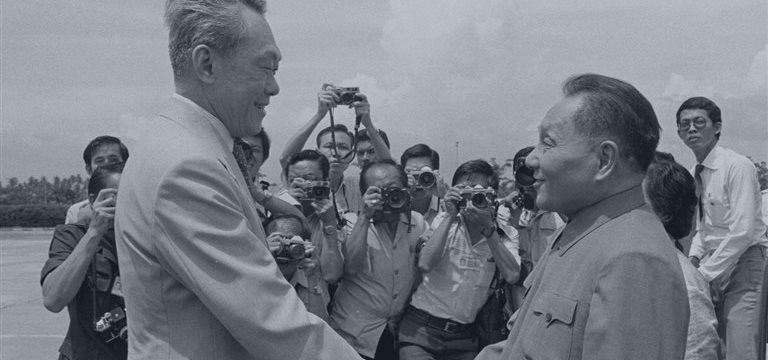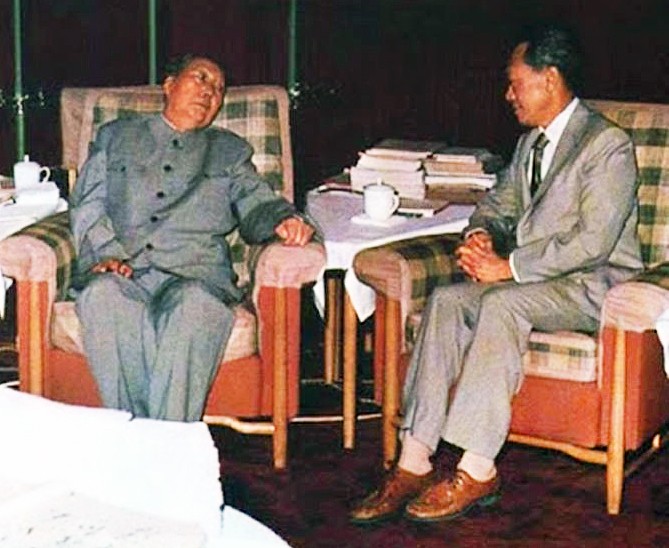
Singapore's founding father, Lee Kuan Yew, became a lodestar for Singapore, having made the city without deep history or natural resorces an unprecedented success - a huge hub attractive for business, with high level of life and strict order. Using policies which sometimes seemed controversial appeared to be the best treatment for the emerging global center. Not many know though that Lee Kuan Yew was also one of those who influenced China's path.
Believing that China would always affect his little city state, Lee
wanted to look beyond ideology to comprehend the Asian
giant's future trajectory.
Lee was one of very few men who met all the modern-day leaders of China: Mao Zedong, Deng Xiaoping, Jiang Zemin, Hu Jintao and Xi Jinping. Indeed, at his prime he was sought after by other world leaders for insights into the China's leadership and its thinking.

Mao Zedong (left) and Lee Kuan Yew
In his memoirs, Lee makes plain his admiration for the late paramount leader Deng Xiaoping who led China's opening up in 1978. Lee recalled his conversations with Deng, including the one from the time when Deng visited Singapore. The city left such a strong impression that Deng is said to have counted Lee his only personal mentor.
Their meetings gave way to a deep mutual respect between the two leaders -
Lee's economic advice influenced Deng's thinking, who later set in
motion dramatic reforms that catapulted China into a period of
modernization and growth.
Over the years, Lee found himself continually reminding the world not to underestimate China's global influence.
"Every year they know they are growing stronger, they are closing the gap with the West, economically, technologically and industrially," he told CNN in 2008. "This is not a new power. This is an old power revived."
While Lee was tolerant towards China's communist way, forcefully opposing the Western politicians and commentations inspiring China's democratization, Lee also used to say was that India's democracy could allow it to overtake China in the long run. And even at the height of his "Asian values" rhetoric, Singapore remained a staunch unofficial ally of the United States.
Keeping the US engaged in the region to act as a counterweight to a rising and unpredictable China remained one of the constants of Singapore's foreign policy under Lee and beyond.
Lee paid close attention to relationship between China and Taiwan, as well as Hong Kong, visiting the latter two places annually during his years in office to see how they were progressing. On Hong Kong, Lee said he saw it as a "source of inspiration, of ideas of what was possible given a hard-driving society" and during each annual visit he made it a point to observe what he could learn and introduce in Singapore.
Even after China stopped trying to export communism, Lee was always conscious of the need to dispel any assumptions that Singapore's ethnic majority owed any special loyalty to the motherland.
Cultural and economic links have grown between the two states, but always only on the basis of Singapore's unquestioned sovereignty as an independent republic.


